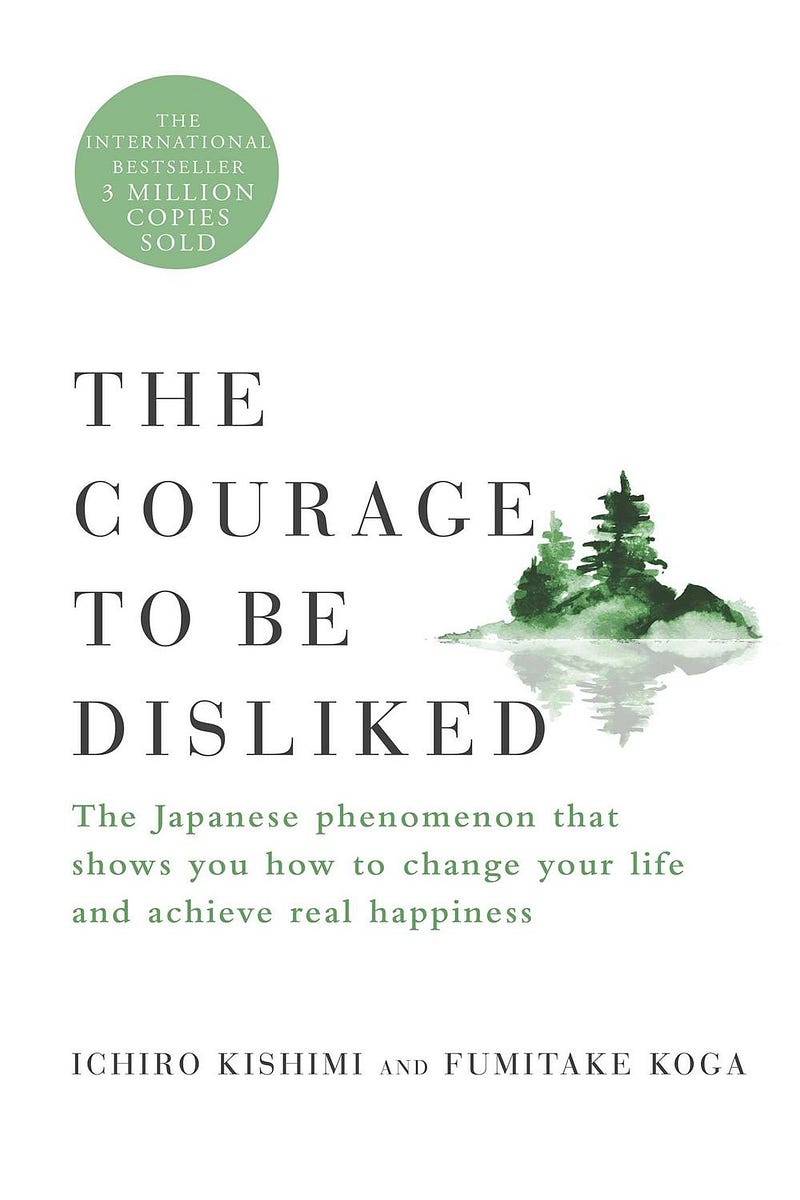Embracing the Courage to Be Disliked: A Journey to Self-Discovery
Written on
Chapter 1: An Unexpected Encounter with Adlerian Psychology
The book “The Courage to Be Disliked: The Japanese Phenomenon That Shows You How to Change Your Life and Achieve Real Happiness” by Ichiro Kishimi made quite an impression when it was released. Eager for answers, I quickly picked up a copy, unaware that it was grounded in the principles of Alfred Adler's psychology. While I appreciate the theories of Freud and Jung, Adler’s ideas about the superiority complex didn’t resonate with me. However, I decided to dive in and see what it had to offer.

Despite its title, this book isn’t centered around gaining approval from others. Adlerian philosophy prioritizes a more profound concept: liberation from our past and the pressures imposed by society. The narrative unfolds as a dialogue, a dynamic exchange between a skeptical young man and a wise elder philosopher. Their discussions were at times frustrating, yet undeniably captivating.
The Courage to Be Disliked Book Review and Summary - YouTube This video offers a comprehensive overview of the book's themes and insights, illustrating how the principles of Adlerian psychology can lead to personal transformation.
Why Do I Feel Trapped?
A key theme presented in the book is “teleology,” which posits that our actions are not merely reactions to past events — such as trauma or a difficult upbringing. Instead, Adler suggested that our behaviors are influenced by the goals we set for ourselves, whether consciously or subconsciously. This perspective challenges the familiar narrative of blaming our past for our present struggles.
Initially, I found this concept difficult to embrace. I often saw it in others, like that coworker who constantly plays the victim. Whenever faced with challenges, it’s all “Poor Susan, nothing ever works out for me.” This book prompted me to consider that perhaps she unconsciously aims to feel powerless, which might explain her reluctance to tackle issues head-on. However, applying this idea to my own life was a tougher pill to swallow.
Section 1.1: The Path to Liberation
The book doesn’t stop at theory; it also lays out actionable steps. One significant idea is “task separation.” It emphasizes that my struggles belong to me, while others’ challenges are theirs to manage. I grasp this concept intellectually, but implementing it in real-life situations can be tricky. For instance, when a friend shares their relationship woes, should I remind them, “That’s not my issue,” or lend a sympathetic ear? I’m still navigating this balance.
Another crucial lesson was “living in the present.” The book argues that many of us get bogged down reliving past events or worrying about what lies ahead. As someone who constantly plans several steps ahead, I found it challenging yet rewarding to focus solely on my current tasks. Ironically, I often find that my best work emerges when I allow myself to act without overanalyzing.
Final Reflections
This book really challenged my thinking. Although I don’t agree with all of Adler’s assertions—some seemed overly harsh or even simplistic—“The Courage to Be Disliked” compelled me to reflect in ways I hadn’t experienced with any other self-help literature. The notion of being disliked? It turns out, that’s merely a catchy phrase. The true essence of the book is about taking charge of your own life, which requires far more courage than simply trying to please everyone. If you're ready for an intellectual challenge, this book is worth exploring. Just be prepared; it may alter your perspective significantly.
The Courage to Be Disliked by Ichiro Kishimi: 6 Minute Summary - YouTube This brief video encapsulates the main ideas of the book, providing a quick yet impactful overview of its core messages.